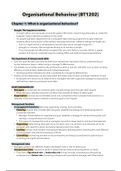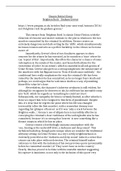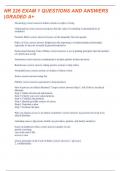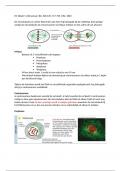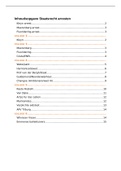Samenvatting
Organisational Behaviour Summary (BT1102)
- Instelling
- Erasmus Universiteit Rotterdam (EUR)
57 pages of book summary for the course ‘Organisational Behaviour’ (BT1102). Includes all required literature chapters; Robbins, Judge & Campbell (2018)- Chapter 1, 2, 3, 4, 5, 6, 7, 8, 9, 10, 12
[Meer zien]
